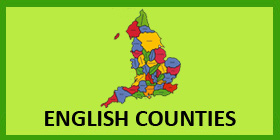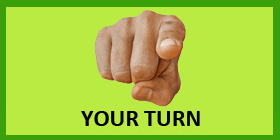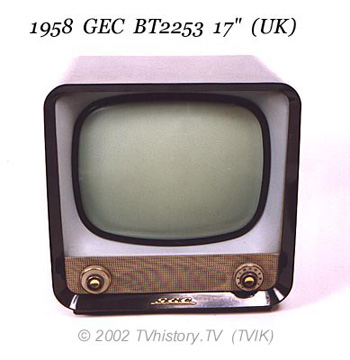




Back to the Around WWII calendar



 On 1 January 1927 the British Broadcasting
Corporation was set up. The very first live radio broadcast took place from the Marconi Factory in Chelmsford, Essex, on 15 June 1920 with a performance by the
Australian singer Dame Nelly Melba. Just out of interest, in 1893, the French chef Auguste Escoffier created a special dessert called the peach melba in her honour.
On 1 January 1927 the British Broadcasting
Corporation was set up. The very first live radio broadcast took place from the Marconi Factory in Chelmsford, Essex, on 15 June 1920 with a performance by the
Australian singer Dame Nelly Melba. Just out of interest, in 1893, the French chef Auguste Escoffier created a special dessert called the peach melba in her honour.
Back to the BBC, by 1922 lots of people wanted licenses to broadcast and they came together as the British Broadcasting Company. After the general
strike, where the BBC broadcast an impartial view of the dispute, it was decided to set up a non-commercial organisation and this was the British Broadcasting
Corporation.
The first chairman was a man called Lord Reith. He believed that the purpose of a broadcasterer was to educate, inform and entertain. The BBC was funded,
as it is now, by listeners paying a fee to have a license allowing them to listen. This meant that the BBC did not need to take any advertisements to provide income.
By 1930 there were 12 million people who held a licence. In 1932 the BBC headquarters called Broadcasting House, were opened in London. On 25 December 1932
the King, George V, made the first Christmas Day message by radio. In 1932 the first experimental television programme was broadcast. A year later, on 2 November,
the BBC opened the world's first regular, limited television service broadcasting from Alexandra Palace. Television was invented by a Scotsman called John Logie Baird so I'd
be a bit naughty if I claimed the invention for England. I won't.
However, it was on January 27th 1926 that Yogi Bear, sorry Logie Baird, gave the first public demonstration of his televisor, as he called it. This is not
a science website, and I failed science, but I have done some research and it seems that Baird's machine used mechanical rotating disks to scan moving images
into electronic impulses. These impulses were then sent down a cable to a screen where they appeared as patterns of light and dark. His first programme
showed two dummy puppet heads which he operated in front of the camera machine away from the audience who then saw it on the screen. Owlbut wants me to
tell you that should you wish to re-create this experiment, he is not a dummy puppet; he is a very intelligent owl. The picture below is Baird and his
machine.

On 1 June 1946, once the war was over, the BBC introduced the first TV licences. They cost £2, about £80 today (2019), and all you got was one channel and the pictures
were in black and white. If you had a TV licence you didn't need a radio one. By the time colour TV started (1967) the black and white fee had risen to £5 and you
needed to pay £10 for a colour licence, about £180 today (2019). Interestingly the current licence is £154.50.
 I know some of you will find it to hard to understand but my family didn't have a TV until 1957 and for ten years I thought everything happened in
black and white. In just over 50 years we have gone from black and white pictures on small TVs with just 3 channels to choose from, to hundreds of channels on
massive screens, if you want. This may be one reason why I don't like watching TV on my phone or tablet because small screens were what we had in the old days.
I know some of you will find it to hard to understand but my family didn't have a TV until 1957 and for ten years I thought everything happened in
black and white. In just over 50 years we have gone from black and white pictures on small TVs with just 3 channels to choose from, to hundreds of channels on
massive screens, if you want. This may be one reason why I don't like watching TV on my phone or tablet because small screens were what we had in the old days.
Going back a few years, and returning to a time when there was no TV at all, in 1924 the first ever play was written specially for the radio. If you
think about it, radio made an
incredible difference to entertainment. Until then, if you wanted to see a play you had to go to the theatre. There would be a stage, scenery, you could see the
costumes the actors wore and everyone was in the same room.
A play on the radio was so different. You saw nothing. You had to imagine the scenery. You could only hear voices. You couldn't see costumes. Sound
effects would give you other clues as to what was going on. You, the audience, made so much of it up.
The play was called “A Comedy of Danger” and was written by a Welshman, Richard Hughes. He said that “I was asked by the BBC, in January of 1924, to
write a play for effect by sound only, in the same way that film plays are written for effect by sight only.” It was a listening play. He wrote it in one night
and it was set in a coal-mine.
The first words ever heard in a radio play were “A Coal Mine” spoken by an announcer and setting the scene. Being set in a coal mine meant that, had
it been produced in a theatre, it would have all been dark anyway.
It is fascinating to think about all the new ways that people were being entertained in these times. It certainly allowed the listener to use their
imagination and it is possible that no two people who heard the play would have the same images.



Forward to 1928AD

